Category: Community Organizing & Activism
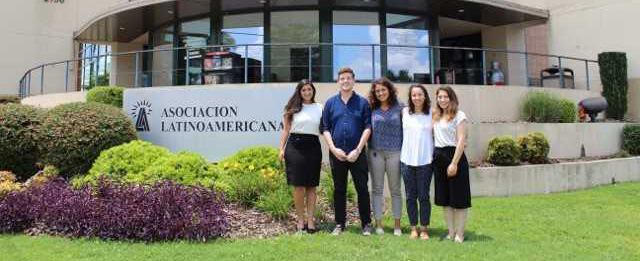
Advocacy in action
By Lydia Zemmali, ’20 (undeclared)
A Georgia legislator sits to my right. To my left, a representative from Forward.US, a nationwide advocacy organization, is opening the meeting with the current situation: DACA’s fall is imminent.
I am sitting in on a Latin American Association strategic meeting where Atlanta-based advocacy organizations, faith leaders, corporate businesses, and state legislators are discussing what to do should President Trump choose to rescind the Deferred Action for Childhood Arrivals, or DACA. They are taking their cue from the DACA recipients present in the room, asking “How can we best serve you?” A DACA recipient, an accomplished lawyer, responds, “I need to know you will do everything in your power to get between me and the ICE officer trying to deport me.”

The message is met with swift action. People write press releases, develop emergency preparedness plans, and arrange meetings with congressional representatives to work for the DREAM and American Hope Acts. In task forces, champions of social justice and businessmen work alongside each other to show the Atlanta community a united front in support of our DREAMers.
I had never witnessed collaboration of this kind. In that meeting, I had a profound realization that I want to continue be in these types of rooms—rooms in which people from many sectors of society concert their efforts, sharing their networks and expertise to bring about change.
Every single day, the Latin American Association showed me how to break down barriers for Latinos living in Atlanta. Each resume completed or Medicaid application filed is evidence of their impact. They showed me that, when run by culturally competent people with a connection to those they serve, a nonprofit can also be a community hub. My time there impressed upon me the importance of advocacy in any career path I choose, and my fellow coworkers embodied the kind of advocate I want to be: one who is responsive, culturally competent, and collaborative with different stakeholders.
Through Community Service Work-Study, Lydia worked as a Family Well-Being intern at the Latin American Association in Atlanta, Georgia.
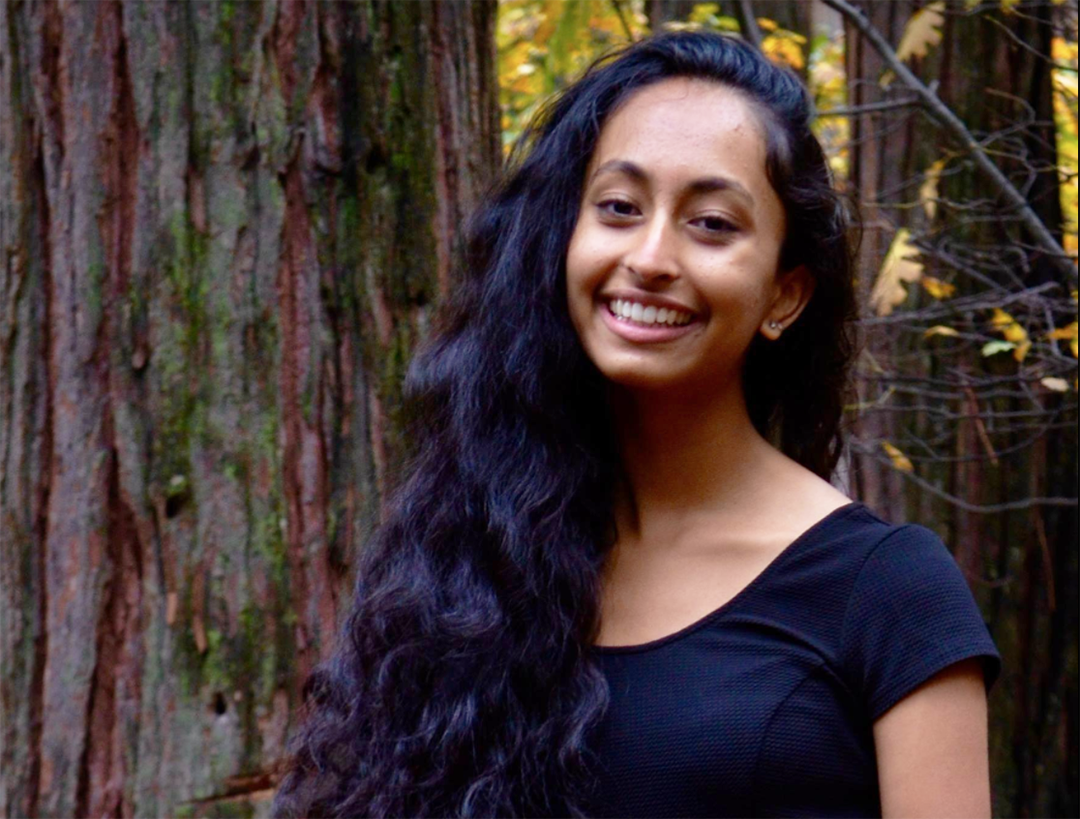
Technology aiding advocacy
By Mayuka Sarukkai, ’19 (Symbolic Systems)
The landlord won’t remove lead paint from the walls – which means health problems for the kids, which means frequent hospital visits, which means no time to work, which means we can’t pay rent, which means we’re being evicted. This is the story recounted by one woman over a housing hotline, but the vicious cycle of landlord abuse and displacement is a narrative shared by countless tenants who are facing the overwhelming reality of gentrification in New York City.
My summer fellowship at JustFix.nyc, a Brooklyn-based nonprofit creating technological tools to fight for housing justice, was a deep dive into this tangled world of housing in NYC. Over the course of nine weeks, I worked on building – from outreach to user research to design to deployment – a new online referral directory designed to provide targeted referrals to best-match legal service providers and community advocates for these tenants facing housing crises. This summer was the first time I truly felt I had access to an arsenal of tools and experiences to bridge real human stories and intentional product development, and to understand what it really means to work at the intersection of humans and computation to create a positive community impact.
Interested in spending a summer doing public service? Find out more about Cardinal Quarter.
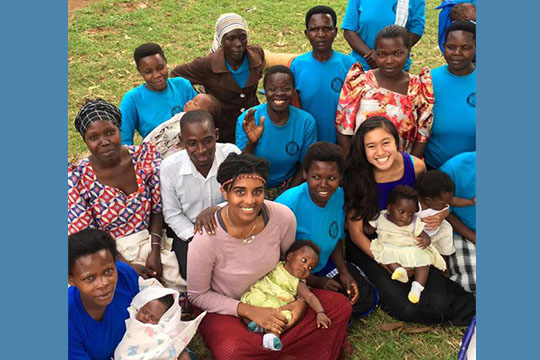
Lessons from Uganda
By Vivian Ho, ’17 (Human Biology)
The drums reverberate in the red dust. The women in the community groups sing to the beat of the drums with a rumble in their voices—a rumble that declares a sense of community, a rumble that states they are effecting change for the issues that matter to them. They are performing dramas about pregnancy, nutrition, and hygiene. The crowd, with over 500 people, is listening.
With the support of a Halper fellowship through the Haas Center for Public Service, I worked with Safe Mothers, Safe Babies (SAFE), a nonprofit organization aimed at reducing maternal mortality rates in eastern Uganda. My time in Uganda challenged my norms and made me evaluate new ones. It forced me to recognize how activism and seeking justice can be loving to the populations who desire to be heard, especially women. It gave me personal stories and examples of frameworks to life that are different from my own, and yet somehow they are not so different. It has given me an itch to recognize the status quo and not be settled in it.
When I left the U.S., I expected simply to do a public health internship in Uganda. By the end of my time there, I realized I had found a family. In the words of a village member, “You have roots here in Uganda. You’re a Musoga.”
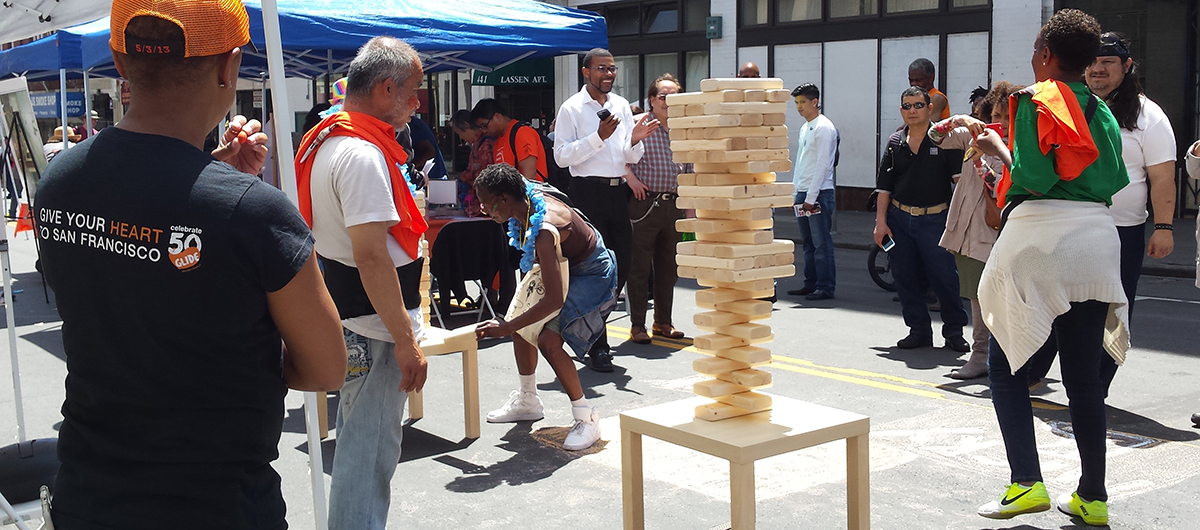
Building community and finding acceptance
Through a summer fellowship, Erica McDowell, ’16, explored service through religion, an interest that grew with her increasing involvement in community work on campus as an ethnic theme assistant at Casa Zapata and as a core member of First Generation and/or Low Income Partnership (FLIP).
By Catherine Zaw, ’15
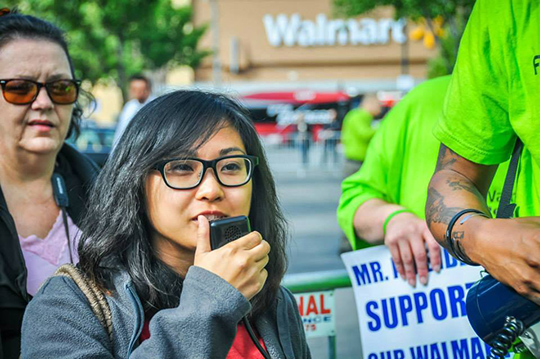
“I am more than a slave.”
By Katherine Nasol, ’15 (International Relations)
“I am more than a slave.” A year ago, I spoke with a Filipina teacher who was trafficked to work in a small private day care near Washington DC. She and many others were illegally recruited from the Philippines, coerced to live in cramped quarters, and trapped in a cycle of debt bondage. She said these exact words to describe her current experience in the US.
Her story is not uncommon, as many migrant workers have left because of inequality and lack of employment in their home countries. When many migrants come to their destination, they are met with discriminatory laws that abuse and exploit them and their families. Although this phenomenon is happening globally, there are also many migrant workers who are speaking up and mobilizing against oppressive policies and conditions. I have had the privilege to learn and work with migrant community organizers both here in my home in the Bay Area and internationally. By organizing with grassroots groups and seeing them push for change day by day, I have learned that justice can only be achieved by those who are affected themselves.
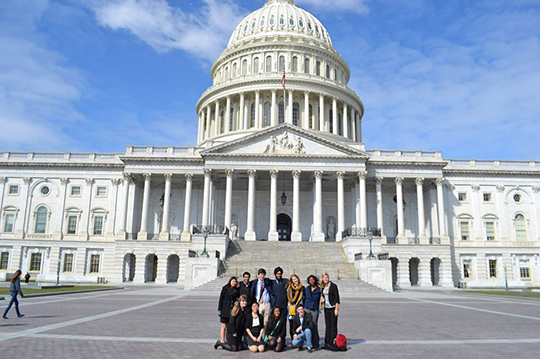
Lobbying for human rights
By Jared Naimark, ’14 (Earth Systems)
In 2013, I led an Alternative Spring Break (ASB) trip to Washington D.C. After teaching a 10-week course to 12 fellow undergraduates on international human rights advocacy with my co-leader Emily Witt, we set off for a week-long exploration of our nation’s capital. We met with eight different nonprofit advocacy organizations and one government agency and engaged their staff in provocative discussions centered around the question: How can we get more people to care about international human rights and take action without oversimplifying the causes of or solutions to violent conflict?
With these discussions in mind, our group set off for Capitol Hill. We were nervous and tired, and most of us had never been in a lobby meeting before. But we put on our best clothes, reviewed our notes, and stepped into the congressional offices with confidence. We asked for the US to cut military aid to Rwanda which had been supporting abusive insurgent groups in Eastern Congo, and also asked for human rights benchmarks to be met before the US resumed military to military relations with Burma’s armed forces. After these lobby meetings, our trip was over, but our group’s commitment to transforming human rights advocacy was just beginning. Empowered by the notion that elected officials would actually care what a group of college students thought about human rights, our group was inspired to take what we learned on our trip and apply it to a diverse range of public service causes and pathways.
